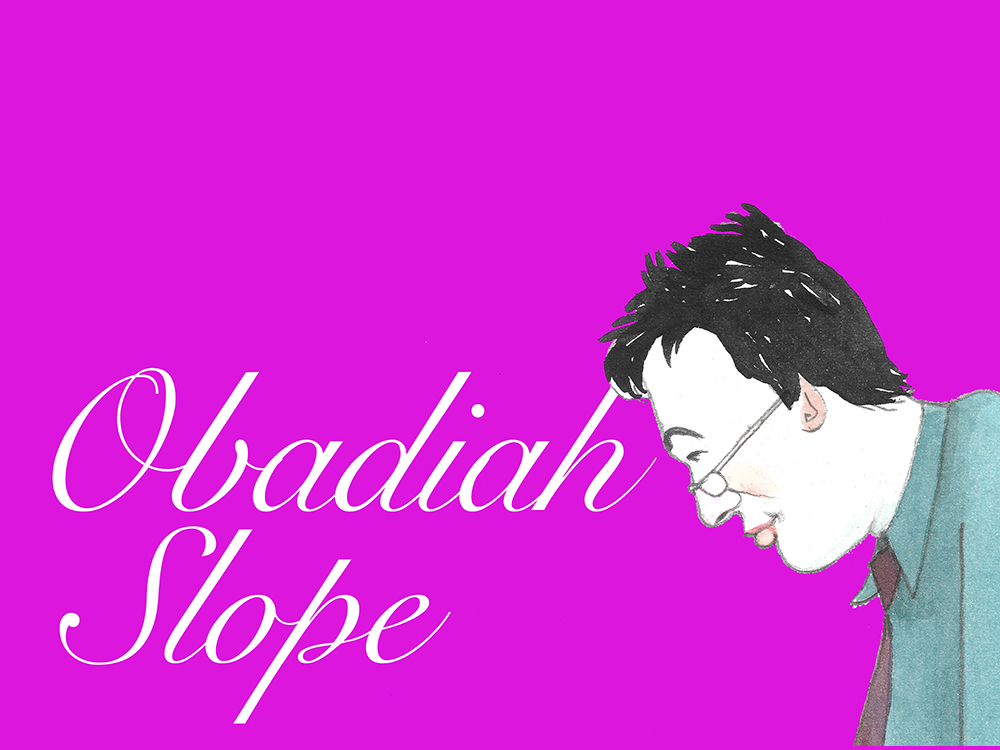An Obadiah Slope column, a week of reading
Loving all people: Obadiah came to know Henri Nouwen, who managed to write about living in faith in a way that spans Catholics, Evangelicals and not a few progressives, through a battered copy of his first book, the Genesee Diary owned by the woman who married me. I have a suspicion it is a first edition. Like all of Nouwen, it is a reflection of a man yearning to devote his life to God and others.
Nouwen tracks down a quotation the Abbott of the monastery he is living in as a young priest, seeing if he could be a monk, “.. a passage from [Thomas] Merton’s Conjectures of a guilty bystander, which John Eudes quoted in Chapter had a special meaning to me. It speaks about one of Merton’s trips to Louisville: ‘In Louisville, at the corner of Fourth and Walnut. in the centre of the shopping district, I was suddenly overwhelmed with the realisation that I loved all those people, they were mine and I theirs, that we could not be alien to one another even though we were total strangers.'”
Have you had that sensation? Sometimes, it has been overwhelmingly vivid for Obadiah, too. Could it be the Holy Spirit? Yes.
###
A question worth asking: Catholic writer (yes, another one) Ross Douthat responds in a subscriber-only comment in The New York Times to Pope Francis giving priests the ability to bless same sex couples: “But the crisis of Catholicism is inextricably bound up with the larger crises of the West and indeed the entire world. What is the relationship between a liberalism that controls the organs of authority and a reactionary and populist resistance? What kind of successful cultural settlement is possible on the far side of the sexual revolution? Can a liberal-individualist society avoid falling prey to despair, sterility, even extinction? Can a conservative alternative be something more than a truculent remnant, an anachronistic fringe? Does the future belong to the secular progressivism of an aging West, the supernaturalist Christianity of a youthful Africa, or to the collision of both with some sort of emergent post-Christian spirituality, the rise of techno-religion or the return of pagan magic?”
Douthat is convinced God will look after the church.
###
Something you did not know about Saint Augustine: For many people, Saint Augustine is the saint best known for his repentance. But there’s a l realised Scott Harrower of Ridley Melbourne gave six unknowns about the saint – here’s one to whet your appetite. Go to Mike Bird’s “Word for the Bird” substack to get the rest.
“Augustine navigated a complex cultural heritage and context.
“Fitting in can be hard. One of Augustine’s life-long problems was that he didn’t know where he belonged, and neither did others. Where do North-African, Christian-pagan, backwater geniuses belong within a massive Roman Empire? Augustine’s mixed cultural background and context made life hard for him throughout his life –even when he was a famed Bishop. No one could decide whose side he was on. He was born into a mixed family in terms of its cultural background, religious practises and beliefs about what made for a good life. Here are some examples of the complexity he had to handle: his mother was a North African and his father was likely from the Italian regions. In addition, Augustine’s mother Monica was a deeply pious North African Christian; she inherited the stories about heroes of the faith including Perpetua, Felicity, Cyprian, and Lucius. His father, Patricius, was invested in Roman civil religion and Roman culture.”
Reading this, Obadiah realised that Augustine was a bit like him – culturally full of bits and pieces, and pulled in different directions. One day, Obadiah is a post-modern, and the next a Victorian Evangelical. What are your contradictions? Obadiah is sure you have some.
###
What it is like to be an Indigenous woman: Jess Hill, the author of See What You Made Me Do, a very influential (and unfortunately necessary) book about Domestic violence, gave a talk at Obadiah’s local library. She told how a podcast called Curtain’s host Martin Hodgson “changed her thinking. That surprised me, what absolutely fundamentally reoriented my worldview.”
“I remember Martin had this monologue where he was basically talking about what happens to Indigenous women when they call the police if they’ve been assaulted in a domestic violence incident. And he said essentially what happens in a lot of these cases is the police turn up, and they do ID checks before they even inquire as to what’s happened, and they start arresting people on if they have unpaid fines, you know, and some of these fines like you gave me, if you gave not me gave listenerss a few specific examples of cases in which, you know, there had been a grandmother call, for example, and that she’d ended up being arrested for fines about an unregistered dog.
I mean, that’s the thing. I sat there listening. G-d, I didn’t even know you had to register dogs. And here’s this woman who’s called on behalf of her daughter and who is desperate for police to intervene and expecting them to intervene and help her. And the first thing they’re doing is checking her credentials and checking whether she has any outstanding charges. It’s just what started to really sink in for me was the punitive response to Indigenous women who call for help. And that, I guess, finally got across to me. What kind of situation I mean, obviously, Indigenous people are in this country, but particularly Indigenous women who not only have racism, but also sexism as a as an intersectional oppression. So researching that chapter just, I think totally changed my life, not just because of the oppression and reading about what was happening in a punitive sense from police, but also just in really understanding or starting to understand what culture we set out to eradicate when we colonised Australia.”

